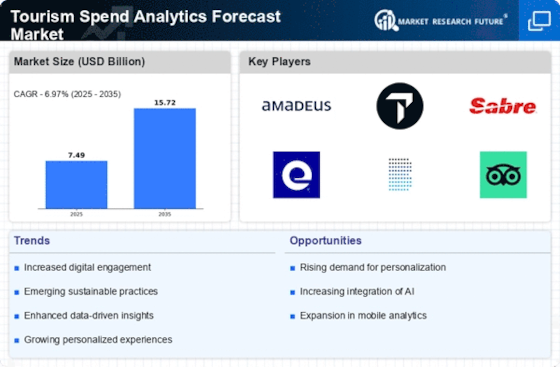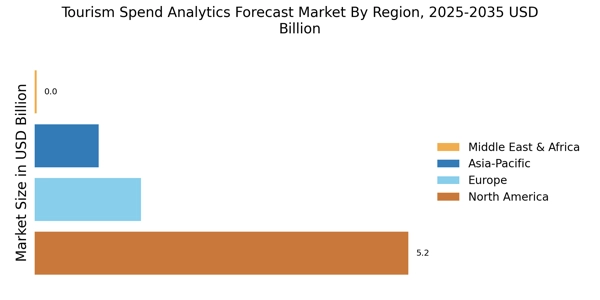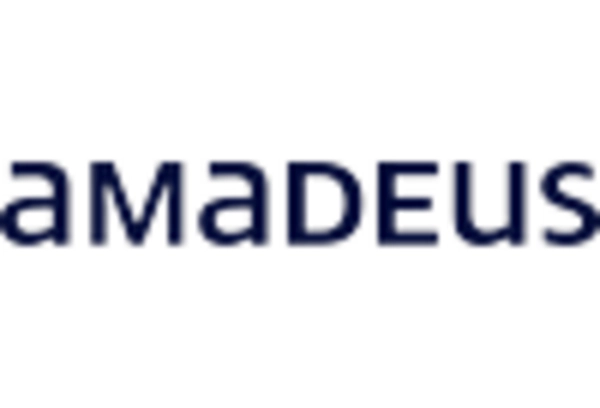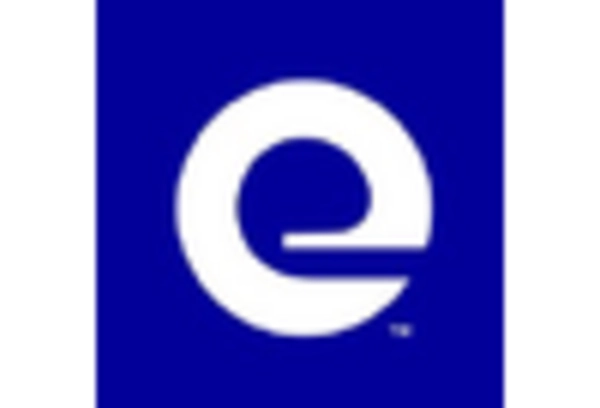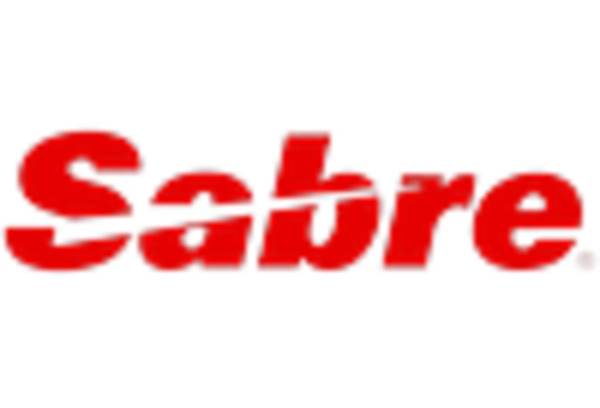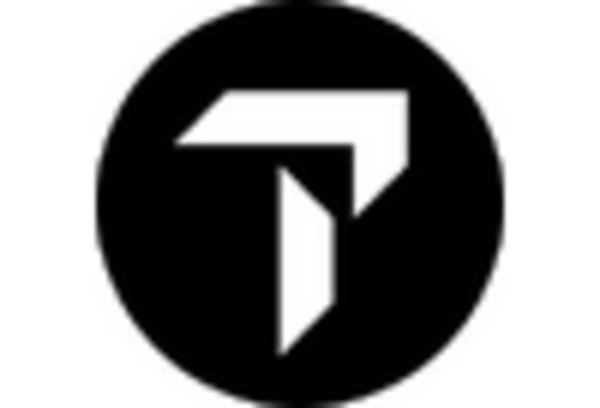Rising Disposable Incomes
The increasing disposable incomes across various demographics are significantly influencing the Tourism Spend Analytics Forecast Market. As consumers find themselves with more financial flexibility, their willingness to spend on travel and leisure activities escalates. This trend is particularly evident in emerging markets, where a burgeoning middle class is eager to explore new destinations. Consequently, businesses within the tourism sector are compelled to adapt their strategies to cater to this evolving consumer behavior. The rise in disposable income is expected to contribute to a 15% increase in overall tourism spending in the next few years, thereby necessitating enhanced analytics capabilities to track and predict spending trends effectively.
Emergence of Mobile Technology
The proliferation of mobile technology is significantly impacting the Tourism Spend Analytics Forecast Market. With the majority of travelers relying on smartphones for planning and booking their trips, businesses must adapt to this mobile-centric landscape. This shift not only influences how consumers engage with travel services but also alters spending behaviors. Mobile applications that offer personalized recommendations and seamless booking experiences are becoming essential tools for capturing consumer interest. As mobile technology continues to evolve, it is projected that mobile bookings will account for over 50% of total travel expenditures by 2026. This trend necessitates advanced analytics capabilities to track mobile spending patterns and optimize marketing strategies accordingly.
Growing Interest in Experiential Travel
The shift towards experiential travel is reshaping the Tourism Spend Analytics Forecast Market. Travelers are increasingly seeking unique and immersive experiences rather than traditional sightseeing. This trend has led to a diversification of spending patterns, as tourists allocate more of their budgets to activities such as culinary tours, adventure sports, and cultural experiences. As a result, businesses must leverage analytics to understand these changing preferences and optimize their offerings accordingly. The market for experiential travel is anticipated to grow by 20% in the coming years, underscoring the need for robust analytics frameworks that can capture and analyze this evolving consumer behavior.
Technological Advancements in Data Analytics
The Tourism Spend Analytics Forecast Market is experiencing a transformative phase due to rapid technological advancements in data analytics. The integration of sophisticated algorithms and machine learning techniques enables stakeholders to derive actionable insights from vast datasets. This evolution allows for more accurate forecasting of tourism spending patterns, which is crucial for businesses aiming to optimize their marketing strategies. As a result, the industry is witnessing a surge in demand for analytics tools that can process real-time data, thereby enhancing decision-making processes. According to recent statistics, the market for data analytics in tourism is projected to grow at a compound annual growth rate of 12% over the next five years, indicating a robust appetite for innovative solutions that can drive profitability and efficiency.
Increased Focus on Data-Driven Decision Making
The emphasis on data-driven decision making is becoming a cornerstone of the Tourism Spend Analytics Forecast Market. Organizations are increasingly recognizing the value of leveraging data to inform their strategic choices, from marketing campaigns to resource allocation. This shift is prompting a greater investment in analytics tools that can provide insights into consumer behavior and spending patterns. As businesses strive to remain competitive, the ability to harness data effectively is paramount. Recent studies indicate that companies utilizing data analytics in their decision-making processes experience a 25% improvement in operational efficiency, highlighting the critical role of analytics in shaping the future of tourism spending.


